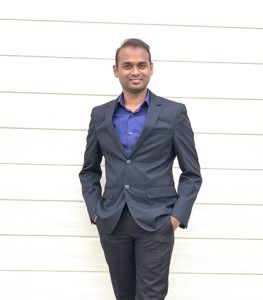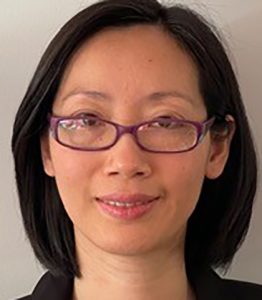Skilled migrant employment program could help drive economic growth
A program aimed at equipping newly arrived migrants and refugees for work in Australia is succeeding in helping get them into jobs that fit their qualification and experience, new research shows.
And as Australia seeks to attract more skilled migrants as if recovers from the economic impacts of the COVID-19 pandemic, making the most of the skills of migrants will be cricual to driving economic growth.
The Skilled Professional Migrant Program (SPMP), operated by migrant and refugee settlement agency AMES Australia, introduces professional migrants to Australian workplace culture and job seeking techniques. Participants receive advice about professional interviews as well as insights into Australian workplace culture networking opportunities within their industries.
A recent evaluation of the program found that 77 per cent of participants had found work within six months of completing the program and 58 per cent were in professional work aligned with their qualifications.
Ninety-one per cent had found satisfying employment within two years of completing the course.
The evaluation canvassed migrant and refugee particpants in 2017 and 2018 courses, half of whom had arrived within two years and 95 per cent within five years.
Since the program began in 2010, 88 per cent per cent of participants had found employment, the study found.
Responsents overwhelmingly agreed that the SPMP had equipped them with the confidence to apply for and secure professional jobs in Australia and that they felt positive about settling in Australia.
AMES Australia CEO Cath Scarth said the research provided strong evidence that early intervention programs, such as the SPMP, increased the likelihood of skilled migrants finding and securing employment relevant to their skills and qualifications.
“As Australia recovers from the economic ravages of the COVID-19 pandemic, it is clear Australia will need more skilled migrants – and programs like the SPMP can ensure we make the most of the skills and experience migrants bring with them,” Ms Scarth said.
“But in many cases these skills are going unused and we are missing out on potentially productive people who can bring new perspectives and unique problem solving skills,” she said.
“We are seeing many of these professional migrants accepting jobs outside their skill sets or in roles well below their actual capacities.
“This research shows these kinds of programs are effective in giving professional migrants and insight into and some experience of what it takes to get a job in Australia.
“It is an example of a low-cost, high impact intervention that delivers on the promise of opportunity made to new arrivals in Australia,” Ms Scarth said.
The research paper concluded that an effective strategy to make the most of professional migrants’ skills and experience would be to expand programs such as the SPMP.
“Funding is the core to any sustainable service development. One of the issues faced by the SPMP is the lack of medium to long term recurrent funding. This could be enabled through national funding of programs for skilled professional migrants who require targeted employment orientation and mentor support to relaunch their careers in Australia,” the report said.
The reseach found clear evidence that migrant employment programs should include information on: Australian style recruitment processes and employment applications; orientation to Australian workplace culture; access to work experience and mentoring opportunities; employer engagement and networking opportunities, and; access for migrants regardless of their location.
An earlier study titled ‘A report on professional mentoring in AMES Australia’s Skilled Professional Migrant Program (SPMP), found barriers to work included: unfamiliarity with recruitment practices; a lack of professional networks and difficulty growing them; little knowledge of Australian workplace culture; and, difficulties having qualifications recognised.
 Indian skilled migrant Bharat Guturi secured a job as a structural engineer after competeing the SPMP program.
Indian skilled migrant Bharat Guturi secured a job as a structural engineer after competeing the SPMP program.
Bharat arrived in Australia in 2020 and struggked at first to find work in his profession.
After competing an SPMP course, he was able to get a job as a Structurla and Forensic Engineer with Intrax Consulting Engineers.
“The SPMP was very helpful, even though the online classes becaue of COVID were difficult,” Mr Guturi said.
“The things that we got to learn were very important, especially – for me – it was learning how to tailor for a particular job. That helped me a lot as well as the interactive part of the interview practice we did.
“I also benefitted from having a professional mentor from my industry. Instrumental in helping me understand how the jobs market works in Australia and what employers are looking for,” said Mr Guturi, who has been secionded to a major project in WA.
 Vietnamese skilled migrant Cindy Nguyen obtained a job as a Finance Analyst with the Victorian Department of Jobs and Precincts just two months after completing an SPMP course.
Vietnamese skilled migrant Cindy Nguyen obtained a job as a Finance Analyst with the Victorian Department of Jobs and Precincts just two months after completing an SPMP course.
Ms Nguyen arrived from Vietnam in 2001 as a 17-year-old and studied finance at University but struggled to find a job afterwards.
She said the SPMP course made the difference in her being able to launching her career.
“I found the SPMP program really helpful. It covered all the areas of employment, plus it had a volunteer mentor component,” Ms Nguyen said.
“I found it a unique program, very different to other things I have tried but very effective,” she said.












